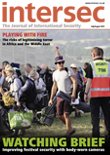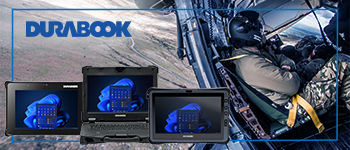Fear and loathing in Africa
Anthony Tucker-Jones reports on the Islamist terror threat facing Central Africa
Outside Bangui, the capital of the Central African Republic, next to the international airport is a sprawling camp home to some 100,000 Christian refugees. They live in squalid conditions and in fear of their Muslim neighbours. This is symptomatic of the vast humanitarian crisis now facing the country. As a result of the latest round of sectarian bloodletting, some 935,000 people (20 per cent of the tiny 4.6m population) have fled the hostilities and around 2.2 million are running desperately short of food. The country is on the verge of tearing itself apart at the seams.
The Central Africa Republic (CAR) has faced misery after misery since independence from France in 1960 – in that time, for just one example, there have been eight coups. The latest misery is sectarian violence between the country’s southern Christian majority and northern Muslim minority communities, which has been whipped up by Islamist militants. Worryingly, there are striking similarities with Nigeria which is waging an ongoing counter-terror campaign against the Islamist Boko Haram militant group. Nigeria suffers the same north-south sectarian divide. Dark forces are thought to have been at work in CAR, fanning the flames of decades-old economic, ethic and sectarian tensions.
Key among these are the Seleka (or Alliance) warlords who are believed to have been influenced by the Middle East’s Sunni Salafist jihadists, which includes al-Qaeda and Saudi Sunni Wahhabism. Sudan’s feared Janjaweed militia from the Dafur region and Chadian mercenaries support them. Added to the chaotic and dangerous mix is the presence of the Ugandan rebel movement, Lord’s Resistance Army that operates from CAR.
To the northeast of CAR, Christian South Sudan, which only came into being in 2011, is at loggerheads with Muslim northern Sudan; to the south of CAR the Democratic Republic of the Congo (DRC) remains a war-torn basket case. The French-led Operation Artemis in 2003 to stop militias killing civilians in northeast DRC proved only a temporary fix. Notably, this was the first autonomous EU military intervention outside Europe run by the European Union Force or EUFOR.
“Blood” diamonds and other looted natural resources such as Coltan, copper, gold and timber have fuelled the bloody conflicts in the DRC. Such revenues helped arm and equip the many feuding militia armies in the region. AK-47s can be purchased in the Congo for as little as $50-$100 apiece. Sourcing weapons for CAR’s factions will not be a problem.
The Second Congo War, which ran from 1998 to 2003 and involved seven foreign armies, was so devastating that it is sometimes called the African World War. This conflict is the world’s deadliest since the Chinese Civil War, killing 5.4 million people. Over 90 per cent died from malaria, diarrhea, pneumonia and malnutrition, aggravated by displaced populations living in unsanitary and over-crowded conditions that lacked access to shelter, water, food and medicine. This conflict went largely unheeded in the West, and the scenario is now being played out again in CAR.
The subsequent presence of UN peacekeepers in the east of DRC did little to stop the bloodshed. The DRC war had erupted when Rwanda, Uganda and later Burundi backed Congolese rebels who sought to oust the then President, Laurent Kabila. Troops from Zimbabwe, Namibia and Angola stepped in to support the Congolese government.
Under Operation Sovereign Legitimacy, Zimbabwe deployed 12,000 troops, tanks and fighter aircraft to the DRC’s resource-rich Kasai Oriental and Katanga provinces to help prop up the government. Zimbabwe had already provided a steady supply of stockpiled North Korean weapons to Kabila’s rebels during the First Congo War before he came to power.
The vast majority of the weapons seized by the UN in the DRC were Chinese Type 56 and Type 56-1. This is because Chinese weapons are cheaper than those from Russia, Ukraine or other Eastern European countries. China of course does not deliberately infringe UN sanctions that prohibit gun sales to Africa’s war torn states; arms dealers and middlemen do that.
Since independence from France, CAR has been dominated by the Christian majority – that was until March 2013, when the leader of the Seleka, Michel Djotodia became the country’s first Muslim leader. The Seleka rebellion in December 2012, against President François Bozizé, resulted in Djotodia being appointed First Deputy Prime Minister for National Defense in February 2013. When the peace accord broke down, Seleka stormed Bangui and installed Djotodia as president. The country’s Muslims rejoiced while the Christians braced themselves for the inevitable repercussions.
Although the Seleka were officially disbanded, former rebels continued to attack Christian communities giving rise to local Christian self-defence groups called anti-balaka or anti-machete. The latter though have few firearms with which to challenge the Seleka, who have machine guns and other heavy weapons. Rape, murder and mutilation became commonplace, and more than 1,000 people are estimated to have been killed between the end of December 2013 and mid-January 2014.
In the face of the escalating Christian backlash against the Muslim population, Djotodia resigned on 10 January 2014 and fled into exile in Benin the very next day. But the Christian refugees at Bengui have indicated they would rather stay there than risk going home to areas overrun by the violent Seleka. The violence runs both ways, however, with the anti-balakas committing atrocities against Muslims. There has been at least one report of cannibalism following the murder of a Muslim man hauled from a bus in Bangui. This reportedly took place in front of Burundian peacekeepers. Such is the fear and loathing that now stalks the country.
The situation has caused some to look back to the good old days of Emperor Bokassa I who ruled the country with a rod of iron from 1966 to 1979. The French overthrew him with Operation Barracuda, which saw former President David Dacko reinstalled. This is rather like saying Stalin brought stability to Russia; while allegations of Bokassa’a cannibalism were never proved there was plenty of evidence of his brutality, with political rivals routinely tortured and murdered. The massacre of 100 children after a demonstration over school uniforms was the final straw for the French.
The UN Security Council has now passed a resolution permitting European troops to use force in CAR. The African Union has 4,000 men on the ground along with 1,600 French soldiers, but these are not enough to police a country that is bigger than Spain and Portugal combined. The UN has estimated that CAR needs at least 10,000 peacekeepers to stop the killing. There is double that number in DRC.
Until recently, Ugandan forces were also deployed in CAR hunting down members of the Lord’s Resistance Army. Uganda has announced that it is planning to set up a rapid response centre in part to support the African Union’s proposed rapid reaction force. The Ugandans in particular are drawing on their experiences in Somalia and South Sudan.
EU national forces do operate under the auspices of EU mandated military operations such as peacekeeping, but these are small scale as the EU does not have the command and control structure that already exists in Brussels (Nato HQ) and Mons (Nato’s military Supreme Headquarters Allied Powers Europe). The reality of this was acknowledged by the Berlin plus agreement of 2003, under which the EU is permitted to use Nato’s infrastructure to enable it to carry out military operations even if Nato declines to be involved.
Although a Eurocorps HQ has been in existence in Strasbourg since the 1990s, this has a very limited membership – about half a dozen countries of which the UK is not one. Forces are assigned to Eurocorps but remain in their own countries. This is in practice a Franco-German rapid reaction corps that operates alongside Nato. Eurocorps is nominally supposed to be able to direct up to 60,000 men, but this is probably well beyond its current capabilities and, it would be reliant on the participating nations coming with up the troops and logistical support.
President Sarkozy persuaded EU partners to join France in deploying EUFOR in 2008-2009 to secure the CAR and Chadian borders with Sudan’s troubled Darfur region. In the light of the UN’s struggling peacekeeping operation in DRC, it is now hard to see how it will cope with an additional commitment in CAR. Many will see CAR as a purely African Union and French problem.
The UN’s Organisation Mission in DRC assumed control on 1 July 2010 of previous UN operations in accordance with a Security Council resolution. This new mission was authorised to use all necessary means to carry out its mandate, including the protection of civilians, humanitarian personnel and human rights defenders under imminent threat of physical violence, and to support the government of the DRC in its stabilisation and peace consolidation efforts. MONUSCO has just over 21,000 peacekeepers in country. The violence is such that the UN also authorised an intervention brigade consiting of three infantry battalions, one artillery and one special force and reconnaisance company to actively support the DRC government troops.
In the meantime, the worry is that, as the communities in CAR become ever-more polarised, extremist organisations such as Boko Haram and al-Qaeda in the Islamic Maghreb will move into the fertile recruiting grounds of festering resentment. According to US Army General Carter Ham, al-Qaeda in the Islamic Maghreb, the Somalia-based al-Shabaab, and the Nigeria-based Boko Haram were, as of mid-2012, attempting to synchronise and co-ordinate their activities in terms of sharing funds, training and explosives – the last thing anyone wants is them moving into CAR and reigniting the African World War.
Anthony Tucker-Jones is intersec’s terrorism and security correspondent. He is a former defence intelligence officer and is now a widely published defence commentator specialising in regional conflicts and counter terrorism.









